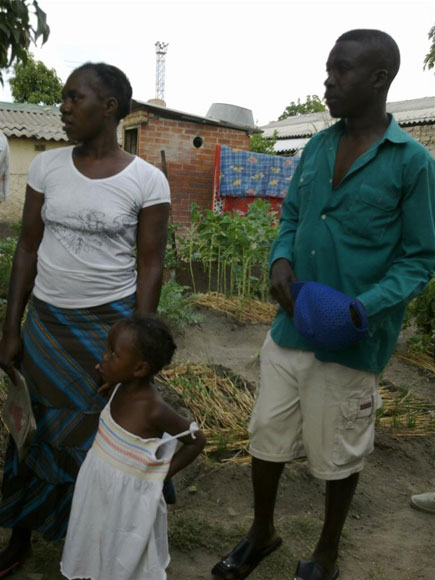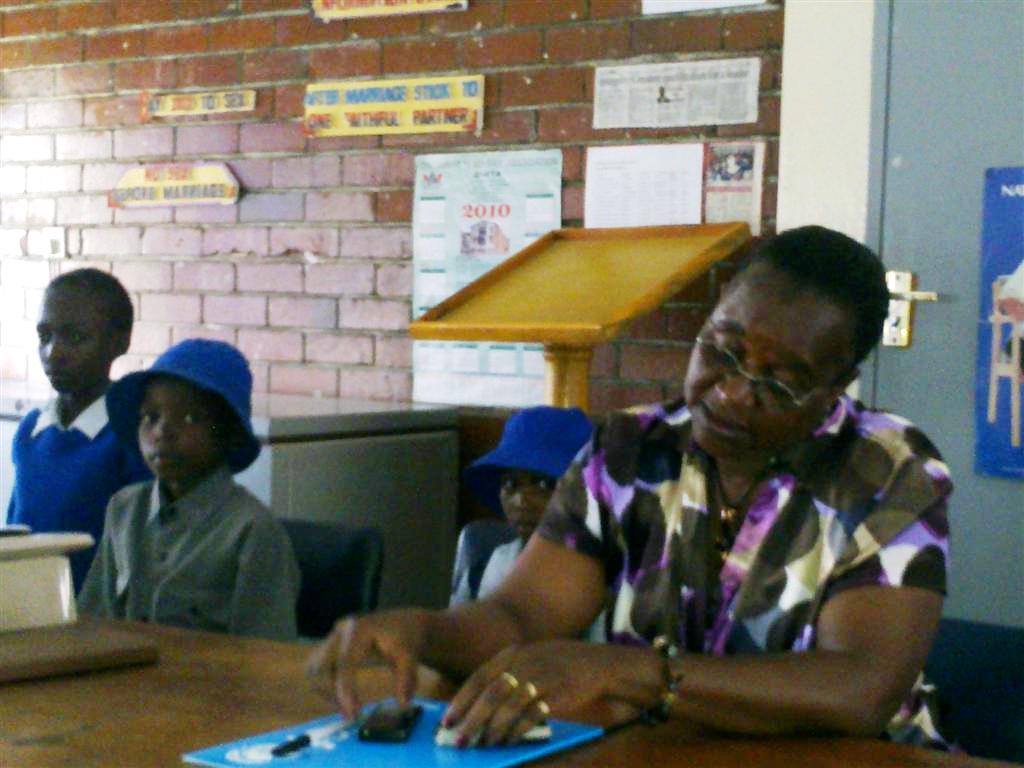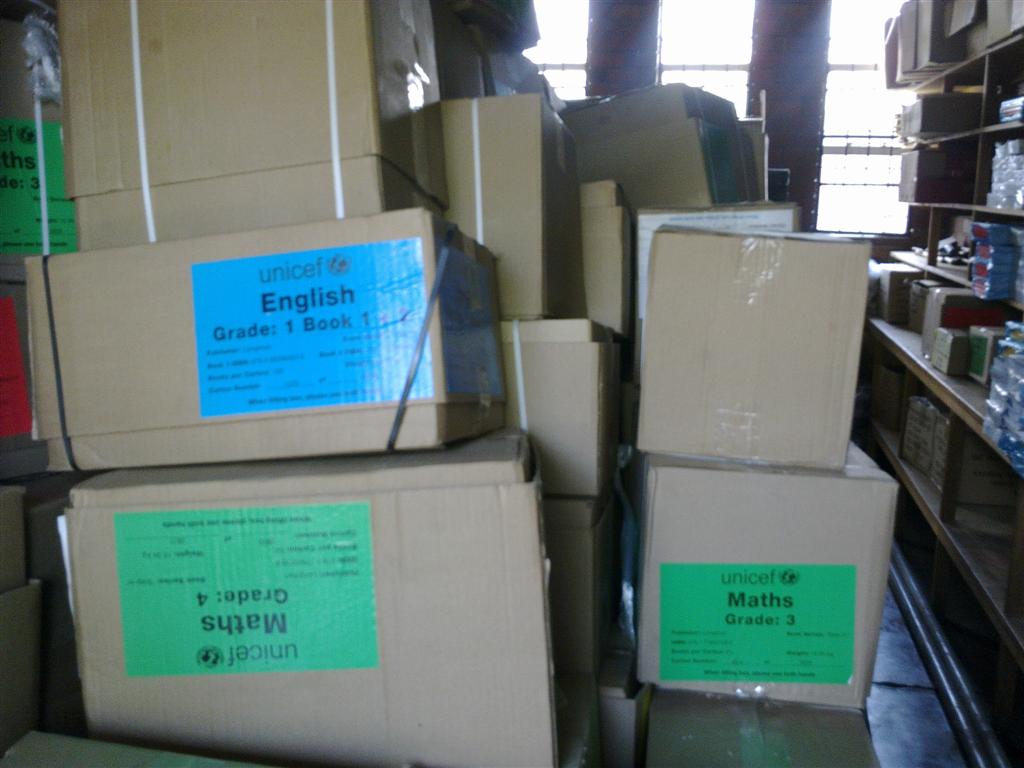
Requests from visiting colleagues to see our work on the ground is a regular occurrence. These trips are not just useful for the visitors, but they also allow me to investigate the programmes I support and see the impact of broader development initiatives.
Recently I accompanied visitors on a trip to Chitungwiza, a sprawling suburb on the edge of Harare. In addition to Fungisai primary school we visited two single parent families and even a hair salon that doubles as a sales outlet for female condoms (femidoms).
HIV and AIDS is a grim cross-cutting factor that makes all of these initiatives essential. Books, school costs for orphans and vulnerable children, support and training for single women fostering orphans, education and prevention of HIV transmission all play a part in tackling the epidemic.
The resilience of people to cope is humbling. For example we visited Grace, who with training and $20 a month in support has set up a vegetable garden behind the room she rents. Grace is raising seven children, four of whom are orphans she has taken in from her extended family.
The Fungisai primary school in Seke gave a very favourable impression, with a tidy campus and a well organised management team under the principal Mrs. Angela Katsuwa. Only two years ago emergency measures such as water pumps and disinfectant were being provided to counter a cholera outbreak; but the surroundings now looked little like the harrowing scenes currently emerging from Haiti.
Textbooks provided by the UNICEF managed Education Transition Fund, which is jointly funded by 12 donors, had recently arrived. Thousands of copies covering the core curriculum were crammed in a store room, waiting for the start of the new academic year. This was particularly welcome, around three months ago I had been at the grand launch, but it's no surprise the logistics of distributing more than ten million books has proved a major challenge. Inaccurate school data resulted in the need to order an extra 1.6 million books and a shortage of smaller trucks needed for rural deliveries has also caused bottlenecks. These problems are now being addressed and over 500 schools per week are currently receiving the books.

We met the women volunteers whose difficult task it is to select the kids who are most in need. Other children who don’t qualify are not excluded from school. Interestingly we were told that one former staff member now teaches in England and pays for the school fees of 15 poor students.

We hope that compulsory school fees and charges can be reduced or scrapped if the current economic trends continue in Zimbabwe. The provision of free books and other inputs will help to reduce costs. Importantly, the government budget for 2011 has also hinted at increases in staff salaries which should dampen the need for a system of teacher incentive payments that emerged during the times of hyper-inflation. As the visit demonstrated getting the right mix of welfare payments, public services and government budgets balanced is essential in every country, rich and poor.


1 comment
Comment by Rajan Shrestha posted on
Dear Ian Attfield,
hi, this is rajan student of Rural Development from Nepal.Well, you doing great job.I really appreciate it .I wish you a very good luck for the rest of the work that you are wishing to do for the people all over the world. Finally , I just say few words ''God IS GREAT''
God bless everyone.
Rajan